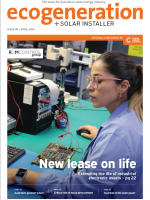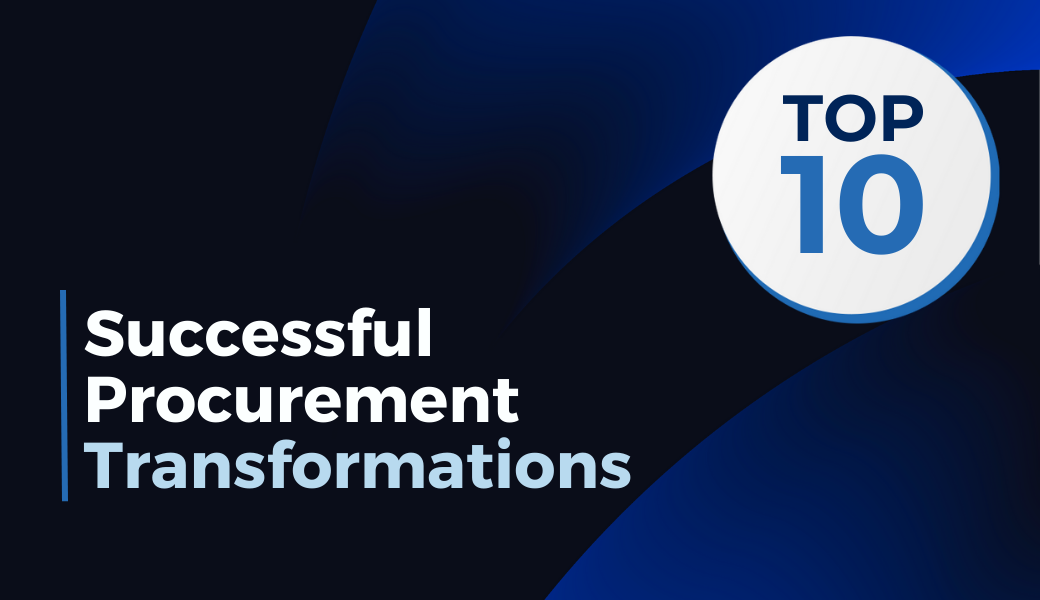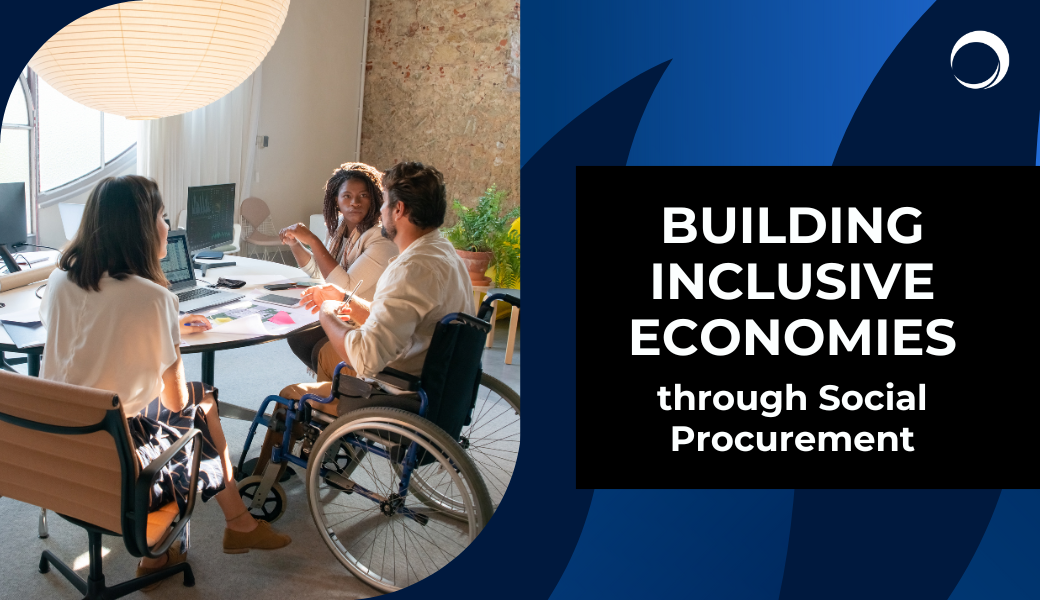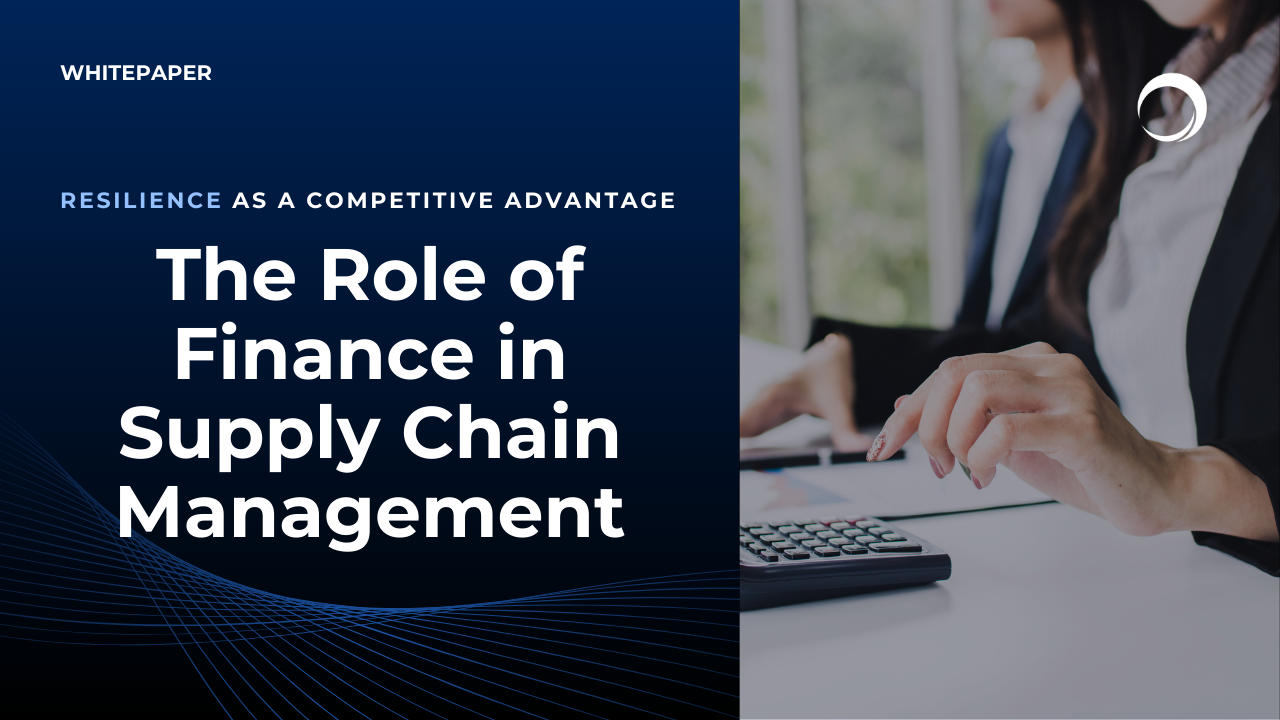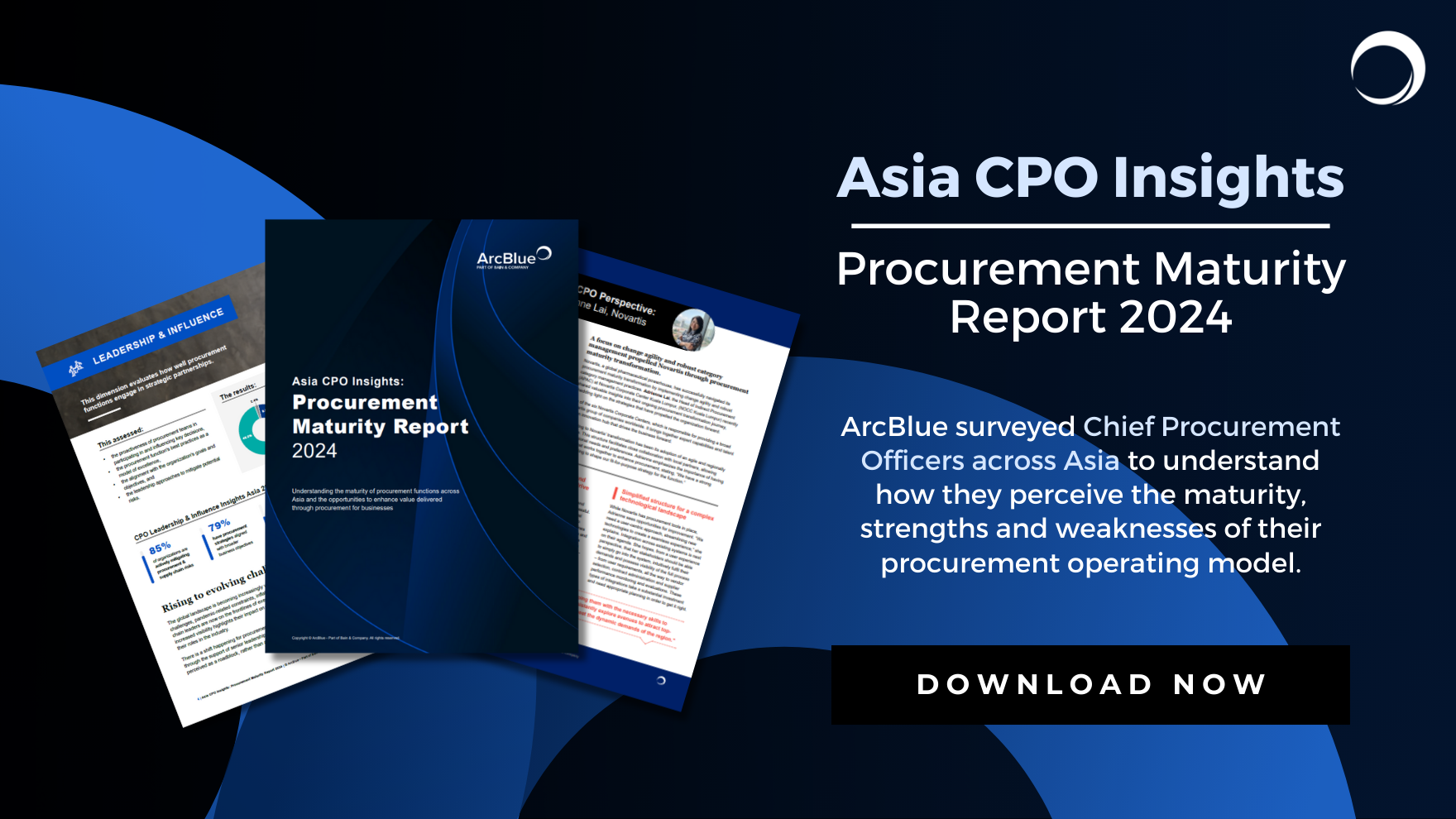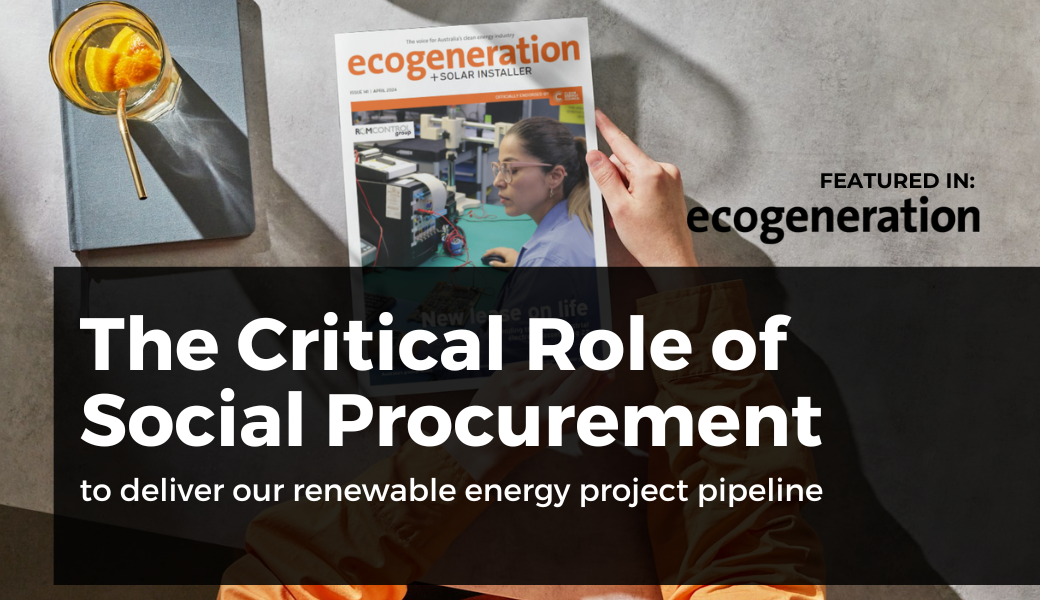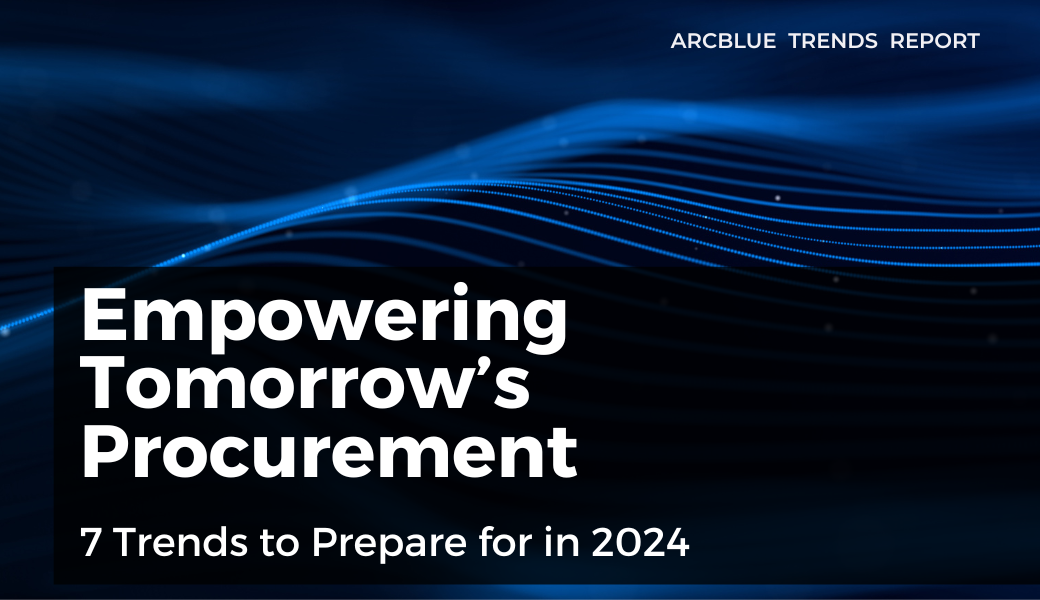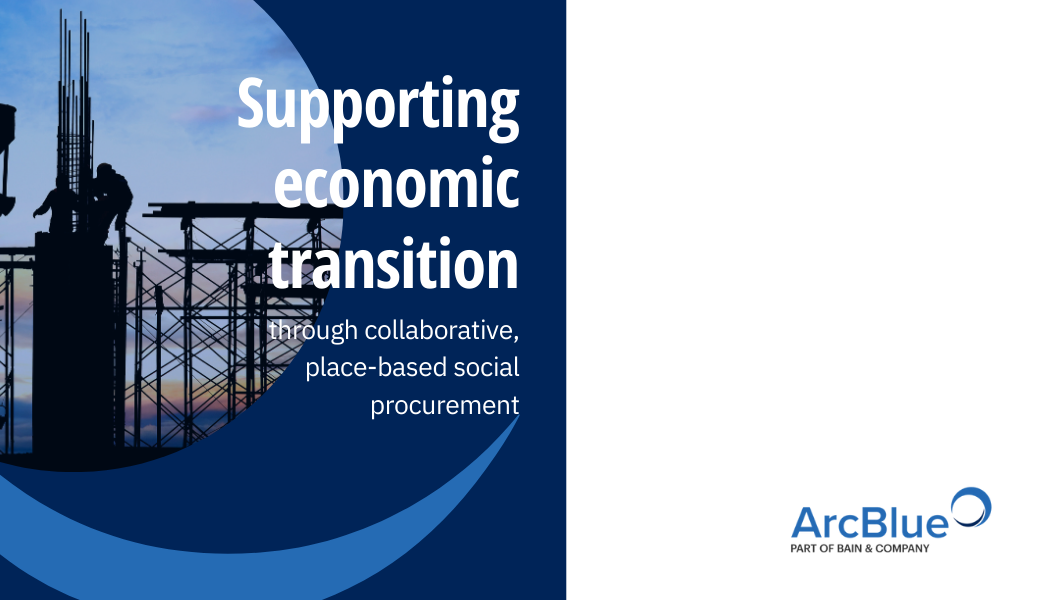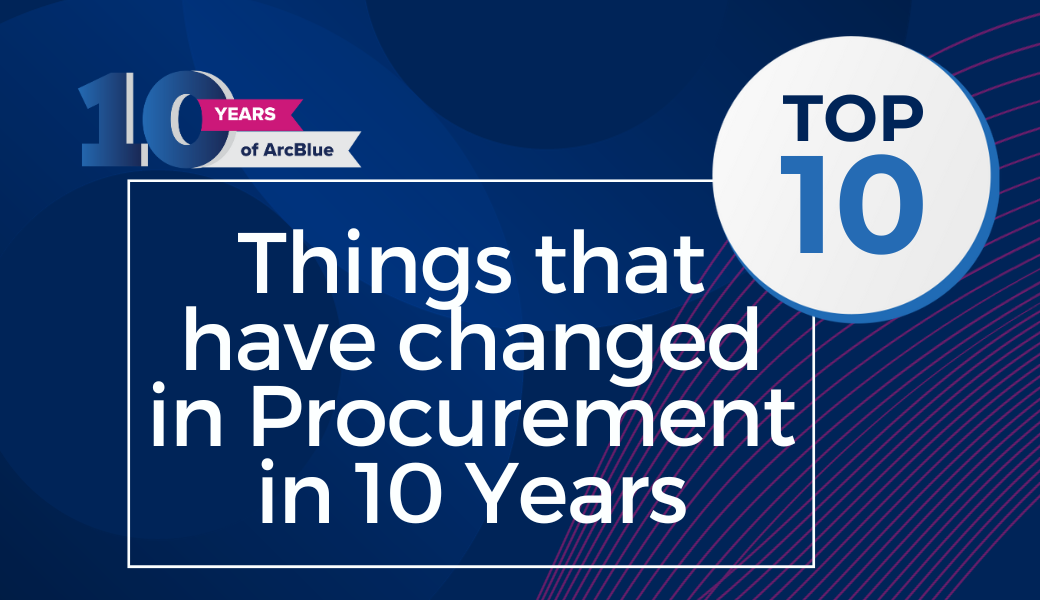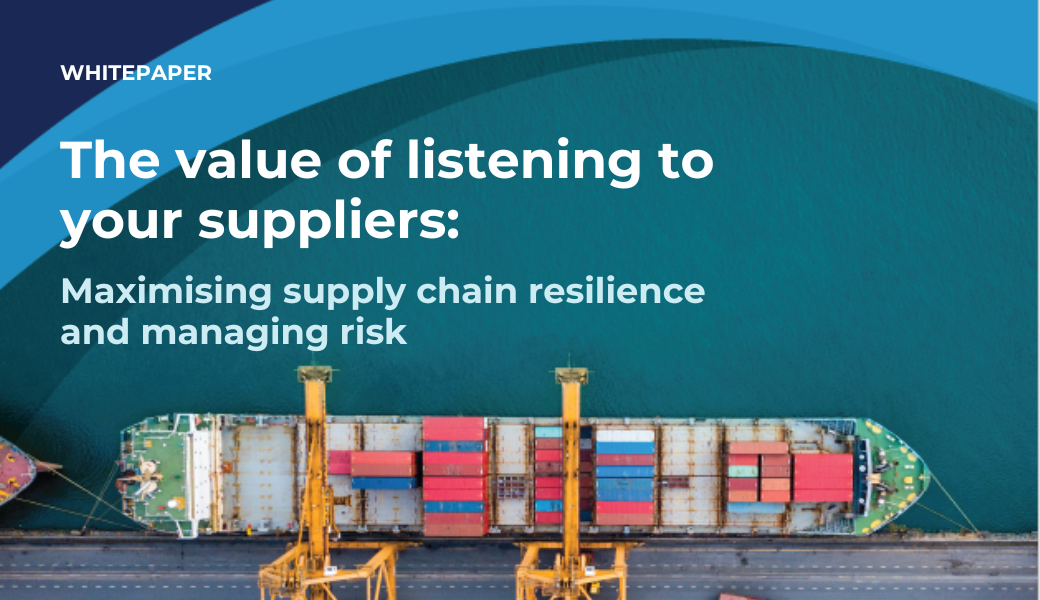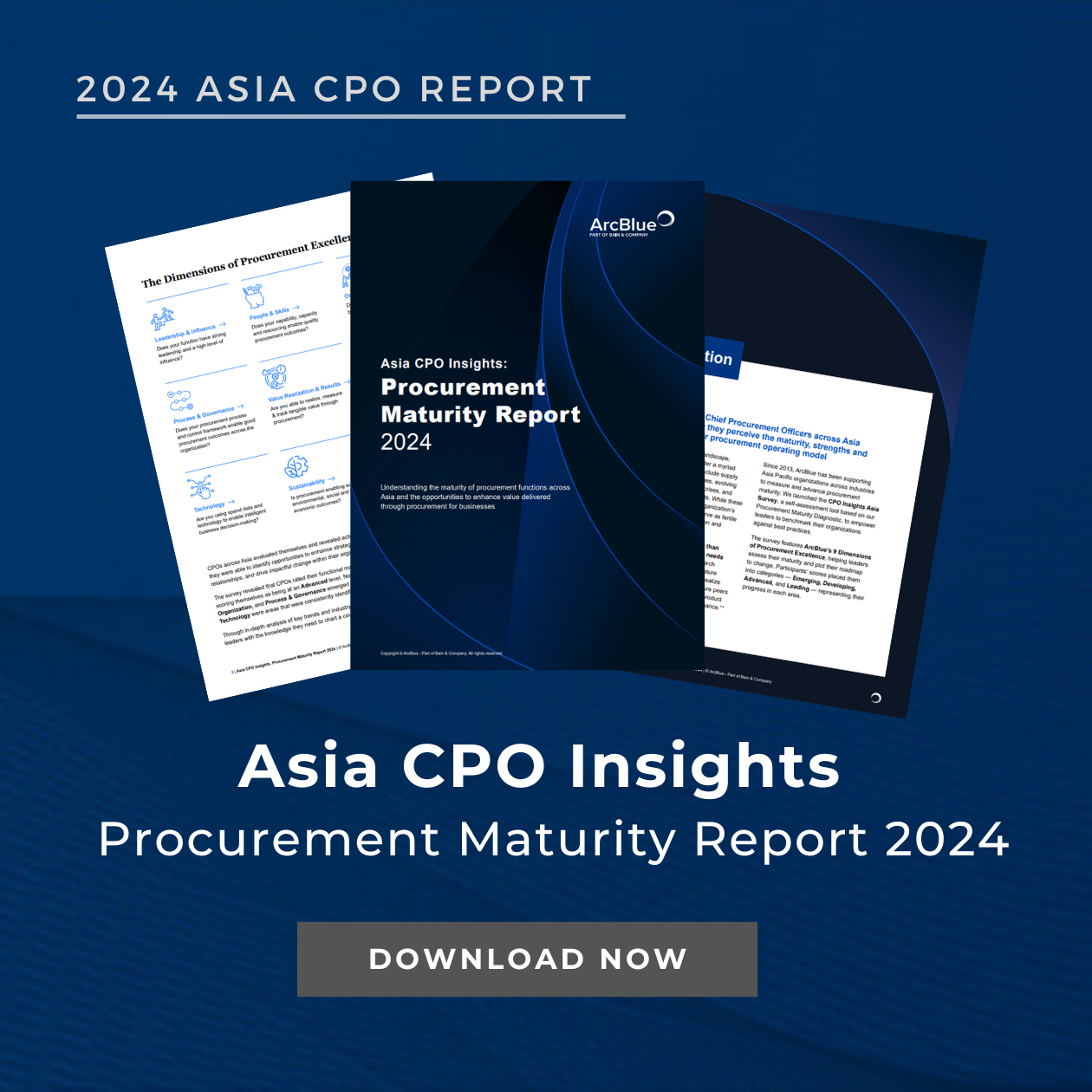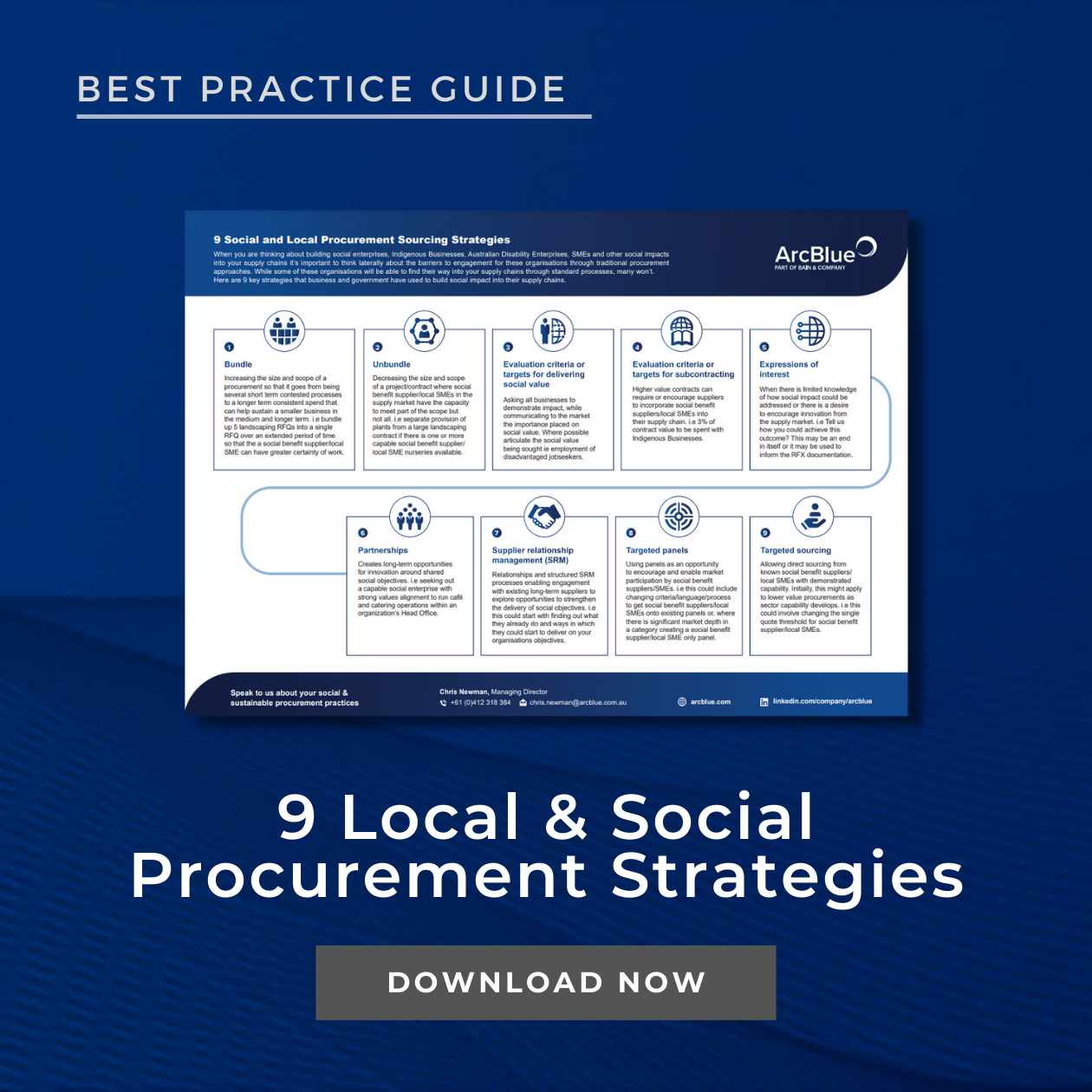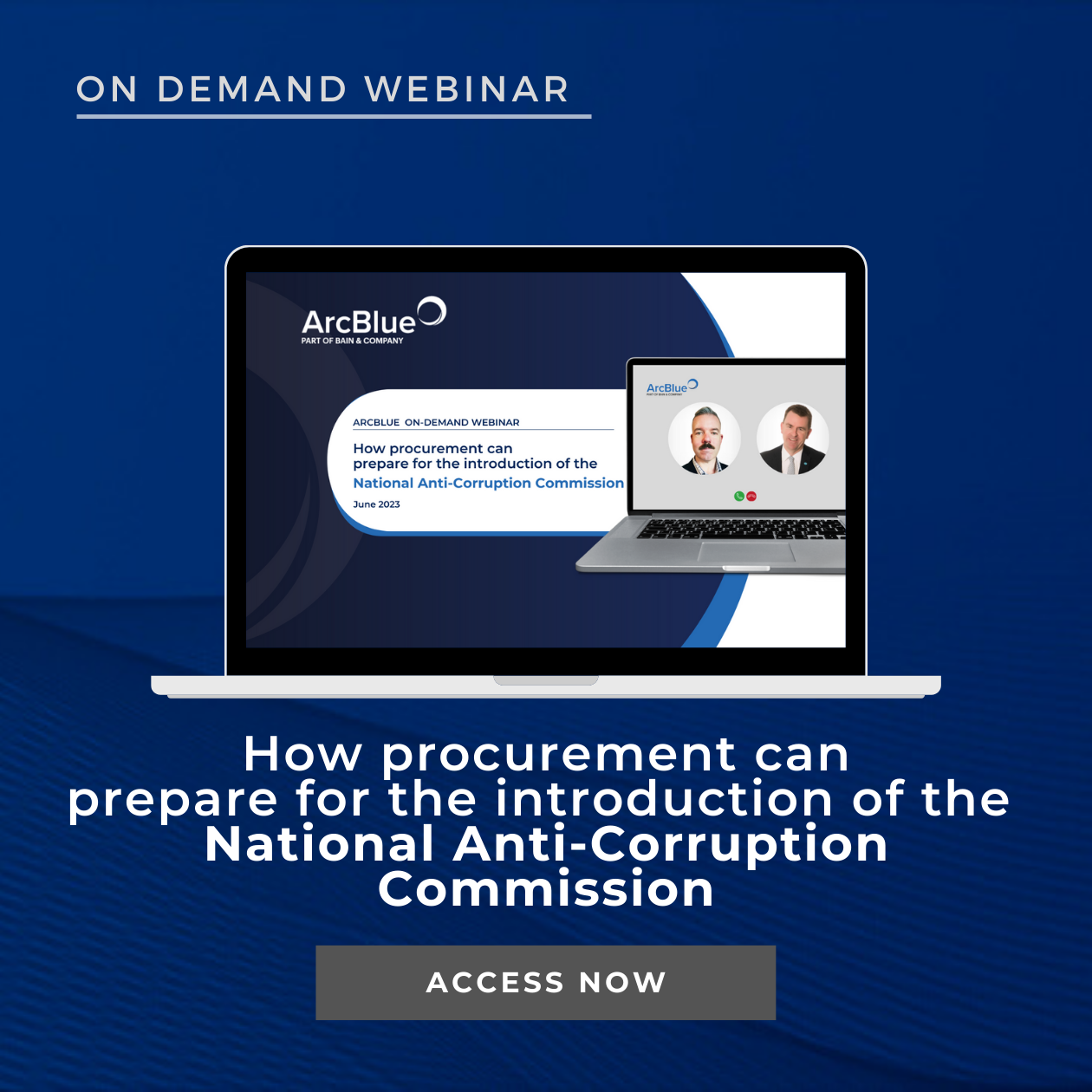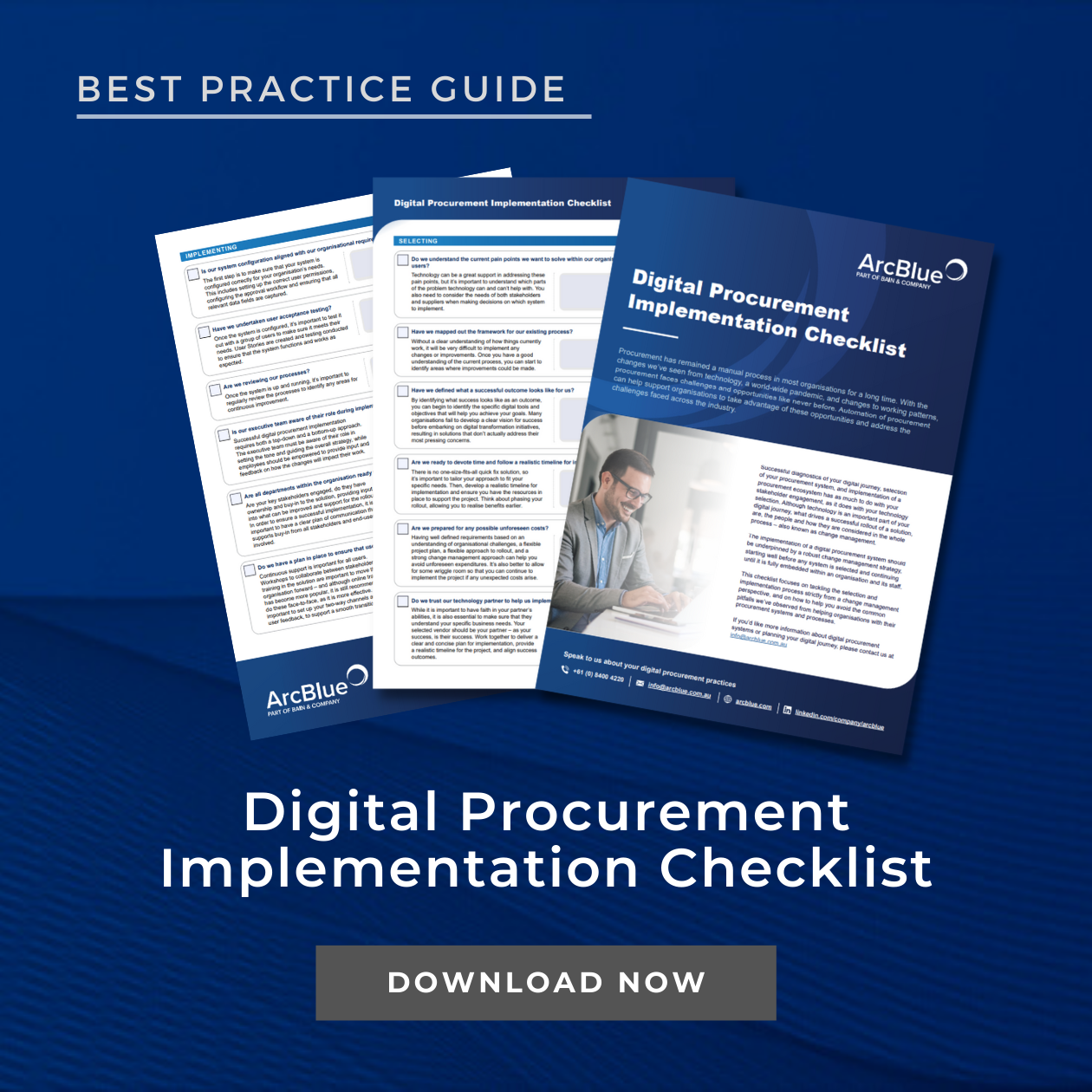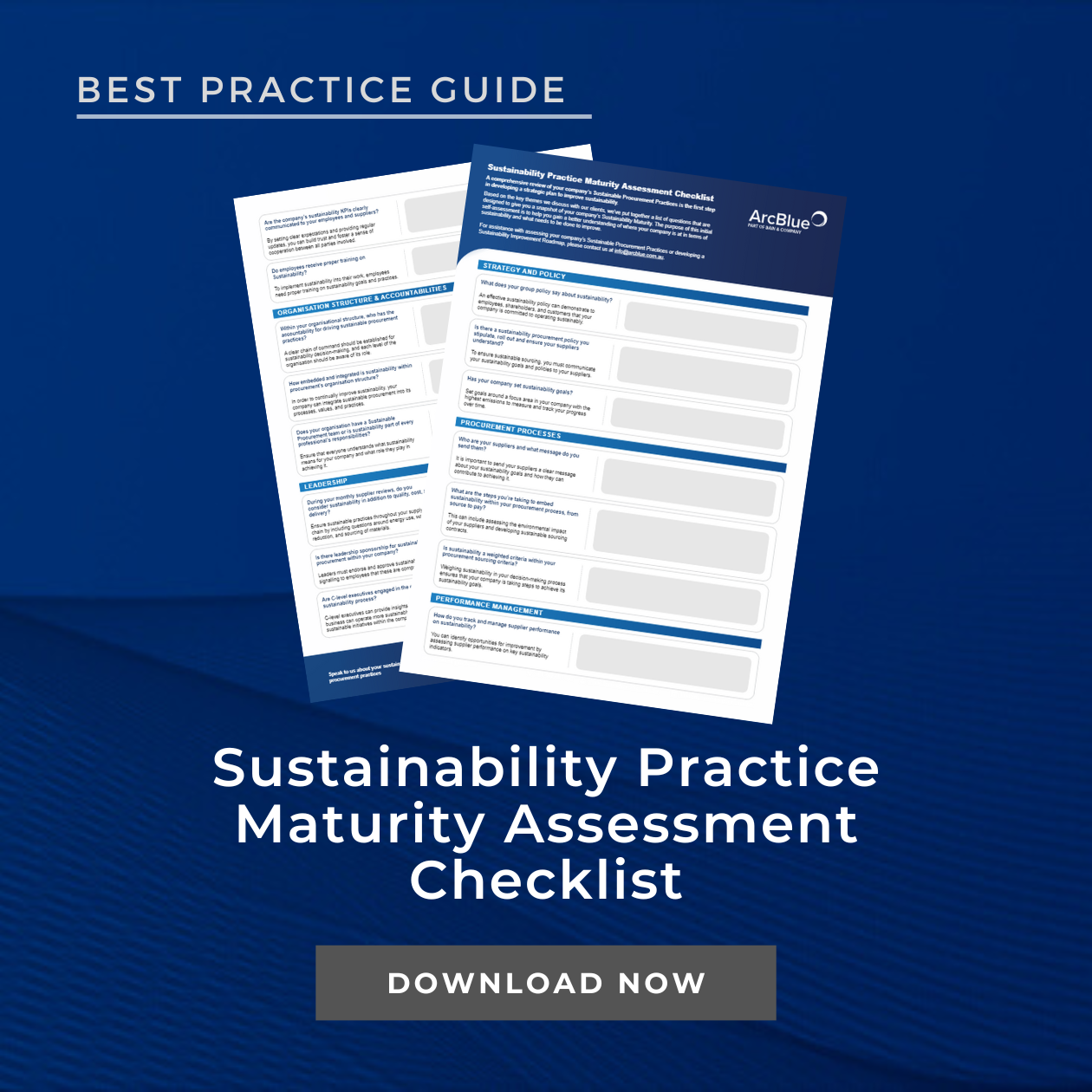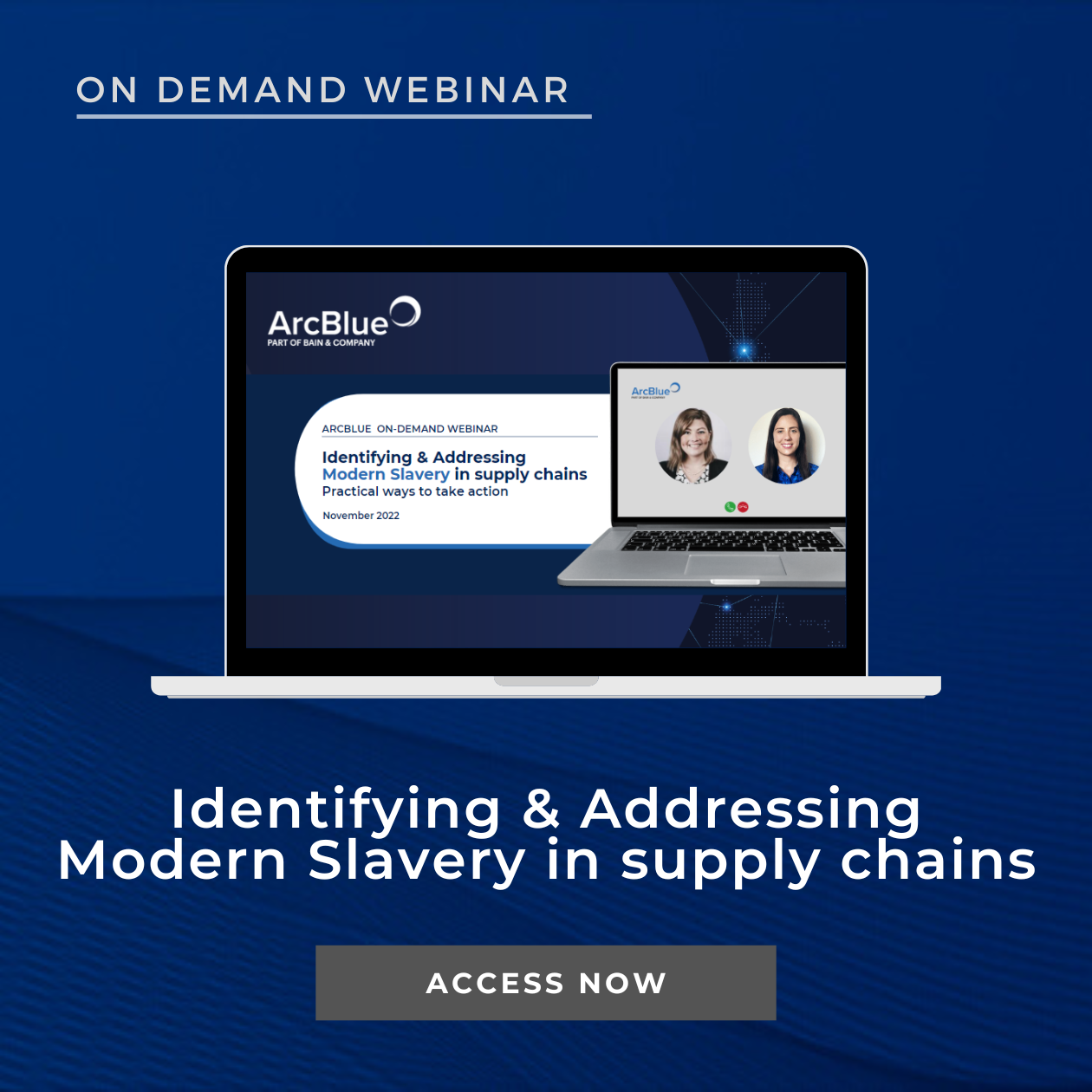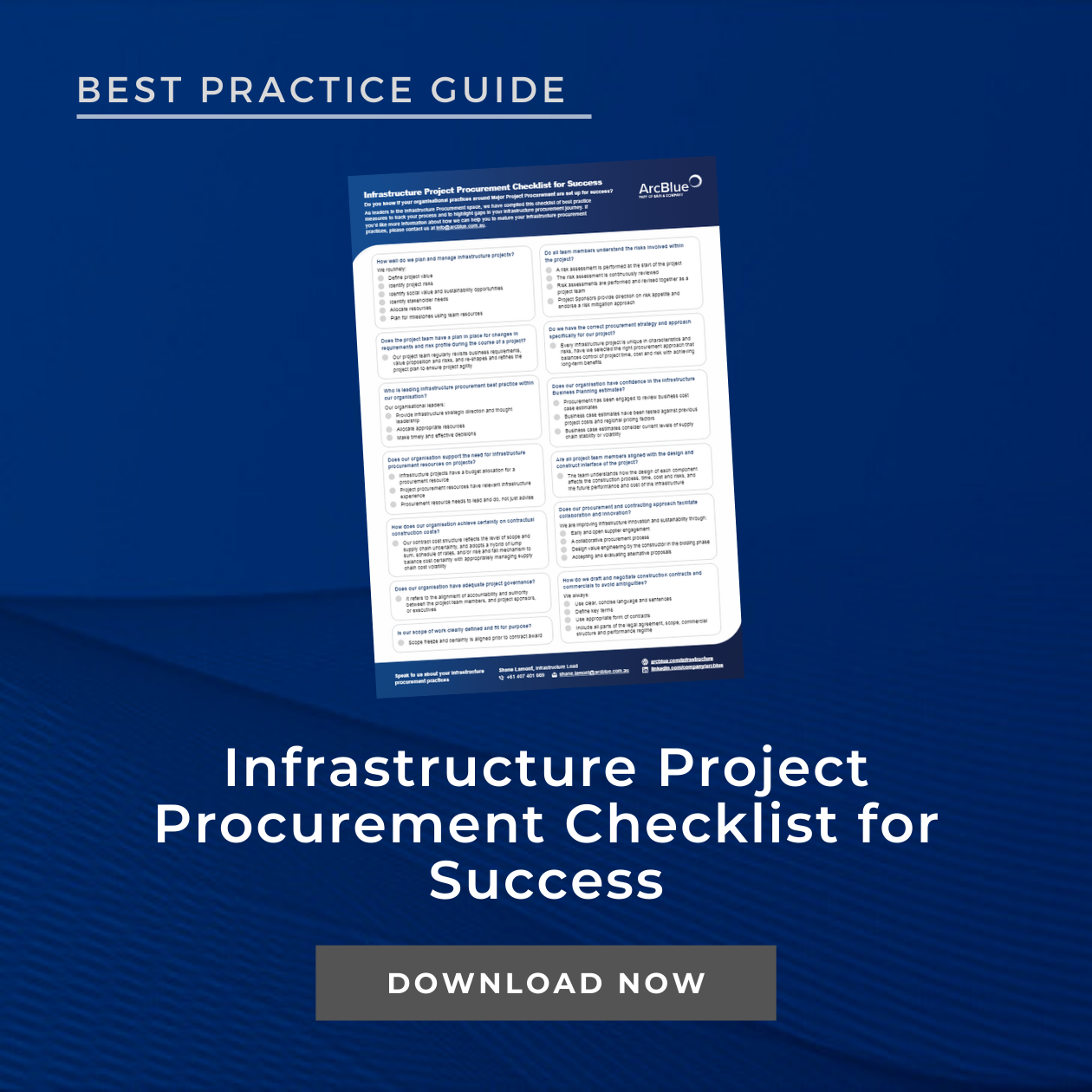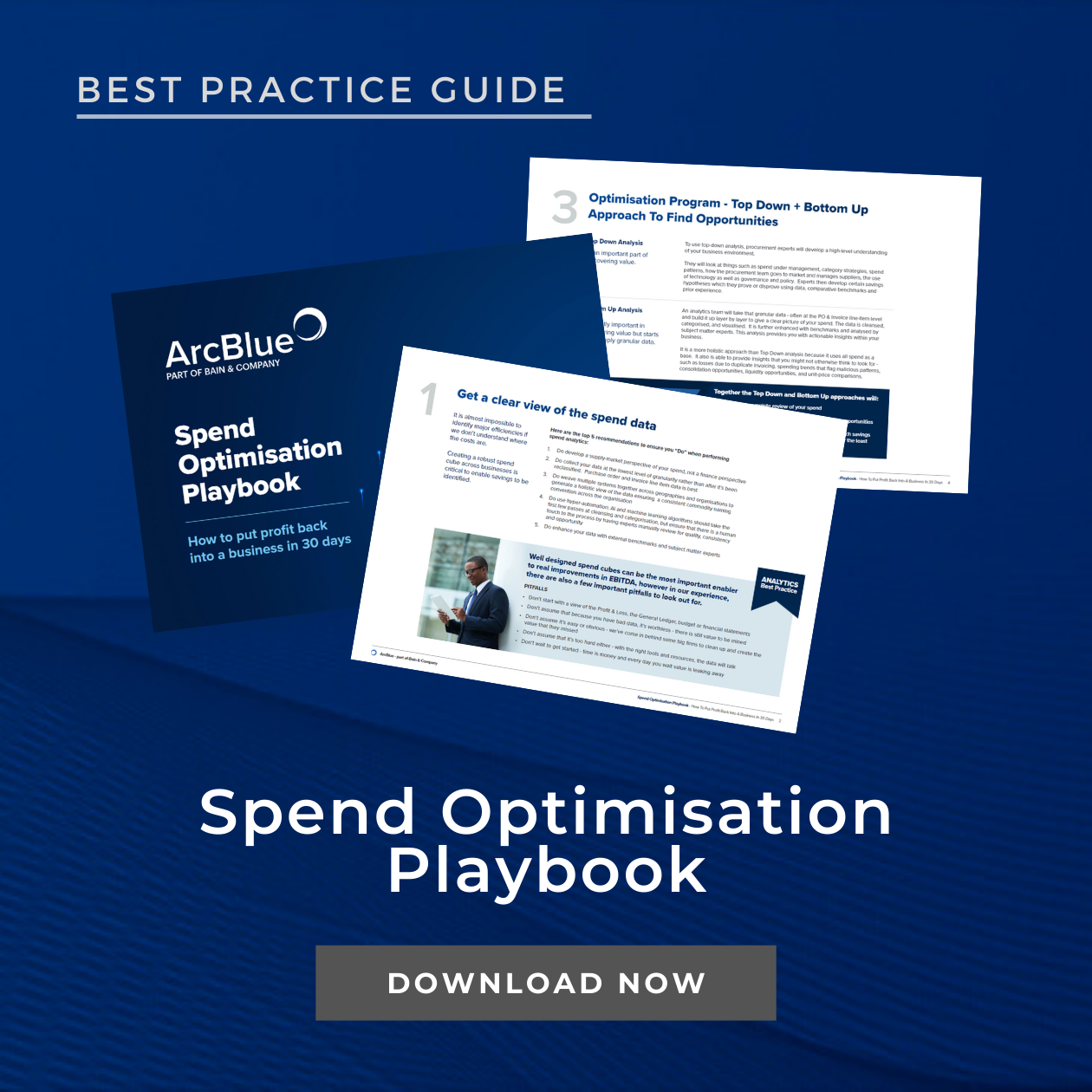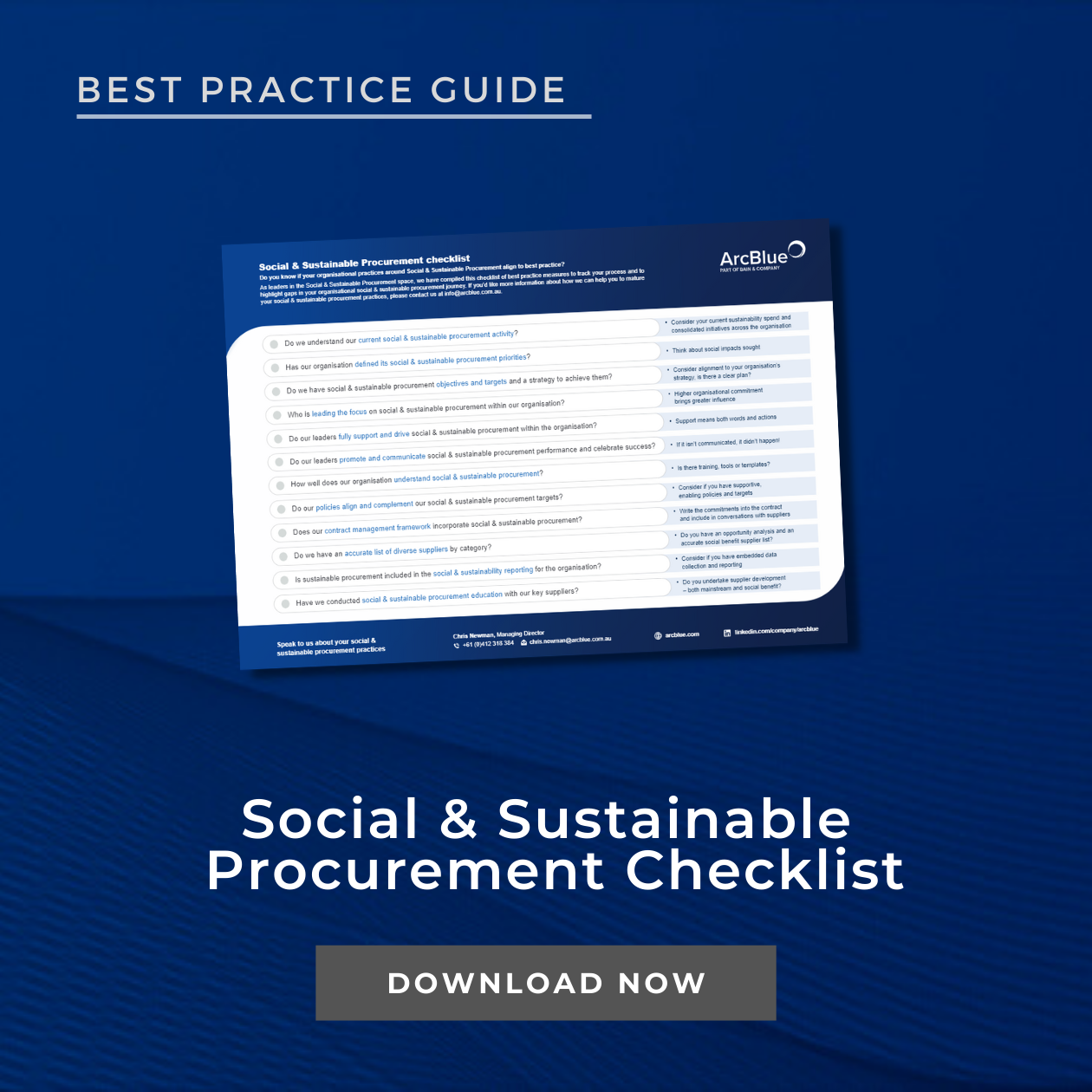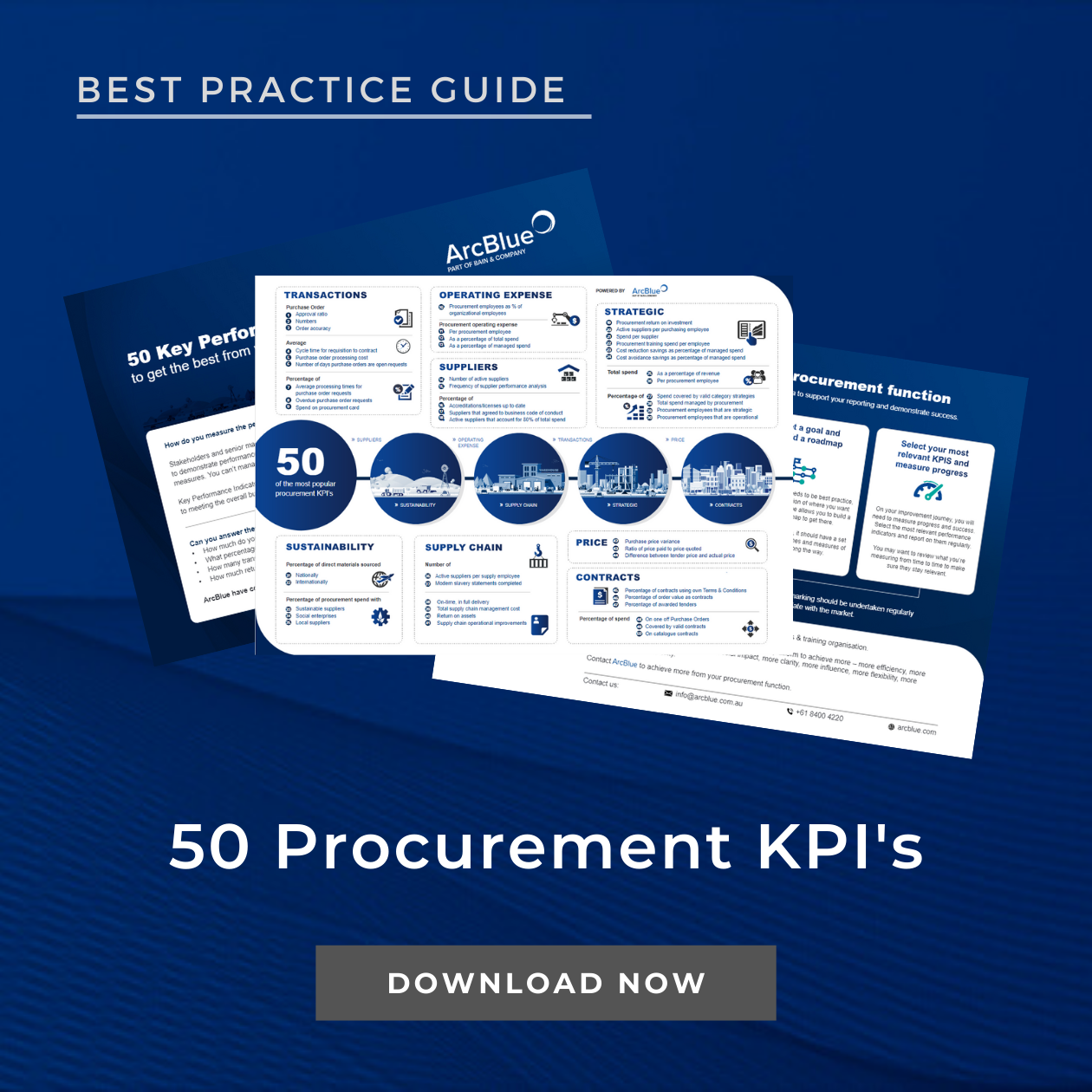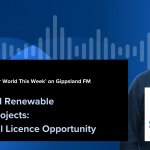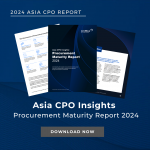- IN THE NEWS – ARTICLE
The Critical Role of Social Procurement
April 2024
Establishing and maintaining ‘social licence’ is critical for Australia’s ability to deliver our massive renewable energy project pipeline. Social procurement is the fundamental vehicle that will deliver on and demonstrate the positive social, economic and environmental impacts that will underpin the achievement of ‘social licence’ through our energy transition.
ArcBlue Managing Director, Chris Newman, spoke with Ecogeneration Magazine on how to achieve social licence in regional communities and the importance of social procurement.
From solar to onshore and offshore wind, batteries, hydrogen, transmission, and everything in between, there are enormous opportunities in renewable energy. However, the speed and scale of energy investment needed in Australia to reduce its dependence on fossil fuels and meet the targets is challenging.
According to Chris Newman, Managing Director at ArcBlue Consulting, the complexity of a diverse and evolving regulatory environment is challenging for all involved, and more work is needed.
“To establish common approaches across different renewable sectors and jurisdictions,” he said.
The increasing competition in the global supply chain highlights the critical importance of building local capacity, investing in procurement and supply chain expertise and early planning.
“Australia is not the only country in the world who are working hard to try to transition our economy and we don’t yet have the strength of local manufacturing. We’re competing with other buyers who are often doing bigger projects and are closer to the suppliers in Asia, Europe, and North America,” Newman said.
Achieving social licence
A key challenge for consideration is how to achieve social licence in regional communities, enabling the delivery of critically required infrastructure, and addressing workforce shortages and supplier capability gaps.
“Renewable energy projects are often promoted as environmentally friendly and socially responsible alternatives to traditional energy sources,” Newman said.
“Maintaining a social licence reinforces this image and aligns with the values of environmentally conscious consumers. Governments and regulatory bodies are increasingly considering community attitudes and social acceptance when granting permits and approvals for renewable energy projects.
“By demonstrating strong social backing for projects, they are more likely to navigate regulatory processes smoothly, reducing the risk of delays or legal challenges. Investors recognise that community buy-in has a huge impact on the success of a project and its financial viability and will view a project more favourably if it can demonstrate strong social support and acceptance in the community.”
For Newman, “social licence is shaped by how a proponent plans, builds and manages infrastructure, as well as the perceived impacts and opportunities associated with the project”.
“Social licence is critical to the success of renewable energy projects, and building acceptance and support for each project will be fundamental to establishing and maintaining community support for the broader renewable energy transition,” he said.
“It is important to acknowledge that the social licence for a project is not uniform among all stakeholders. Different groups may hold varying perceptions and levels of support. Hence, understanding that social license exists on a continuum rather than a simple binary assessment is crucial.”
Establishing social licence can be more challenging for renewable energy projects. These projects are being largely developed in regional Australia where they are subject to intense local scrutiny, and unlike traditional infrastructure projects such as roads, rail, and hospitals, the direct benefit to the affected communities is less clear.
“A genuine commitment to social licence requires an understanding of stakeholder perspectives, a strategic approach and proactive engagement. Best practice involves establishing a comprehensive framework in a place-based approach for and with the community that is communicated, measured, and reported on through the lifecycle of the project(s),” Newman said.
The importance of social procurement
While the importance of achieving social licence is gaining traction, there is still a misconception that social licence should focus only on community consultation, land holders and issue management. While these are vital concerns, there needs to be a broader focus on maximising and demonstrating the specific achievement of local, economic, social and employment impact through the delivery of these projects.
“Social impact assessment processes have told us that achieving sustainable local economic employment, and broader positive social impacts are critical drivers for community acceptance and the achievement of social licence,” Newman said.
Social procurement is becoming increasingly well integrated into publicly funded infrastructure projects across Australia, yet it is inconsistently applied and not well understood in the renewable energy sector.
Social procurement is not only setting targets and requirements for suppliers, but a comprehensive approach is also needed to establish a shared commitment to a collaborative social impact framework between the proponent, key contractors and partners.
Social procurement needs to be integrated at each stage of the development process, ensuring social and local economic objectives form part of detailed planning in the scope, feasibility, and design stages.
In the delivery and operation stages, the achievement and demonstration of social and local economic impact is vital. Strategies and action plans need to be resourced and executed with a consistent focus on measurement and reporting, management of community expectations, and communication about the project’s activities and social and local economic impacts.
“Social procurement enables the integration of service delivery plans and goals such as Aboriginal participation, workforce development, inclusive employment, and local and social benefit supplier engagement to maximise the demonstrable benefit to the community,” Newman said.
There is also a critical opportunity to leverage and integrate community investment schemes to support local partners in delivering or enhancing workforce and local supplier programs that will create a long-term legacy for the community.
As Australia ramps up its efforts to meet the country’s decarbonisation and sustainability targets, hundreds of renewable energy projects are reaching a critical stage in their development.
The speed and scale of development requires a national commitment to social procurement. This will not only underpin the social licence that is so critical to this transition but will ensure we take advantage of this unique opportunity to deliver a sustainable positive legacy for the communities where these projects are taking place.
Engaging in three ways
Established in 2013, ArcBlue is a specialist Asia Pacific procurement and supply chain consulting firm, part of Bain & Company. ArcBlue is experienced in delivering procurement, supply chain and social impact for infrastructure and renewable energy projects.
One of ArcBlue’s key areas of expertise is in delivering social impact, working with governments, proponents, and head contractors, at all levels of the supply chain and key local partners and stakeholders in three distinct ways:
- Organisational policy and strategy – integrating a commitment to achieving social value through all aspects of organisational practice.
- Place-based approaches and programs – bringing stakeholders together to strengthen local eco-systems that can help deliver on the promise of social procurement. This includes the design and delivery of place-based collaborative programs such as Q-Seed to drive local economic development and address disadvantage through local and social procurement, and inclusive employment.
- Project solutions – integrating the achievement of social value into all aspects of a project from design and planning through to implementation and operations. Working with both private and public sector organisations who are delivering major projects to implement practices to actively target, support, grow and measure inclusive employment, and local and social procurement outcomes.
For more information, visit arcblue.com or contact Chris Newman, Managing Director, +61 412 318 384 or at chris.newman@arcblue.com.au
INSIGHTS
RESOURCES & DOWNLOADS






